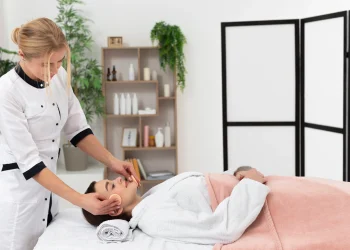Feelings of anxiousness before a significant event are our body’s natural response to optimize our performance and deal better with the situation. Still, excessive and constant stress can lead to anxiety attacks with detrimental effects on your mind and body.
Around 3.1% of the U.S. population is estimated to suffer from GAD (generalized anxiety disorder), characterized by excessive anxiety without any logical cause. Anxiety can look like a racing heart, restlessness, difficulty breathing, and lightheadedness. Long-term effects of chronic stress include fatigue, depression, insomnia, digestive issues, and hypertension. If you feel the adverse impact of sporadic and uncontrolled anxiety attacks, here are some methods to help you alleviate and cope with them.
Table of Contents
1.Aromatherapy
Essential oils are aromatic extracts from different plants that can effectively manage stress when used as aromatherapy. They stimulate the smell receptors in your nose and affect your body’s chemical and energy systems. You can use them through topical application or inhalation.
Essential oils calm the nervous system, improve breathing and brain function, and help with insomnia. If you want to try aromatherapy, go for therapeutic-grade essential oils for aromatherapy and steer clear of synthetic fragrances. Typical fragrances for aromatherapy include lavender, ylang-ylang, bergamot orange, and vetiver.
2.Cannabinoids
The two classes of cannabinoids are CBD and THC. According to research, Delta 9 THC can help with cases of anxiety, insomnia, chronic sleep apnea, loss of appetite, and nausea. Experts use a synthetic form of delta 9, dronabinol, for patients with HIV, anorexia, and undergoing chemotherapy. Still, it has many possible side effects, including memory loss, dry mouth, red eyes, and slow reaction times.
Overdoses can even lead to hallucinations, paranoia, and mental confusion. Always consult a doctor if you want to use THC to treat any medical condition. Due to THC’s euphoric and sedative effects, you should only use it in controlled, prescribed amounts to reduce the risk of dependency. Make sure to consider the legality of its consumption where you reside.
3.Meditation
Mindfulness and meditation can help alleviate anxiety and many therapists recommend it as an excellent way to slow down and calm your nerves. It is also known as a mind-body complementary medicine to attain a deep sense of tranquility and relaxation.
You can incorporate meditation into your daily morning routine to start your day fresh. Making sure you choose a comfortable and peaceful space is best to avoid interruption and become more in sync with your mind and body. It will help you achieve a sense of emotional and overall well-being by keeping centered and focused.
4.Herbal Teas
People have used herbal teas for a long time as caffeine-free drinks for their great taste and many benefits. They are a great way to alleviate stress and anxiety, insomnia, nausea, and digestive issues and to soothe and support your overall well-being. Peppermint tea reduces fatigue, and its aroma has been shown through studies to minimize frustration and anxiety. Other beneficial herbal teas include chamomile tea and lavender tea to treat symptoms of GAD.
5.Exercise
A regular workout can enhance well-being and positively affect your mind and health. Aerobic exercises produce endorphins, natural painkillers in our body that will improve your mood and reduce anxiety. Forty minutes of brisk walking or cycling is a sure way of elevating depression and related disorders quickly; it also helps people sleep better, which in turn reduces stress levels.
Endnote
Many of us suffer from crippling anxiety in today’s fast-paced and stressful life, which can take a severe toll on our bodies. However, It is essential to ensure well-being by having some go-to remedies to cope with stress. So try these 5 natural remedies to know what works best for you and your body.








